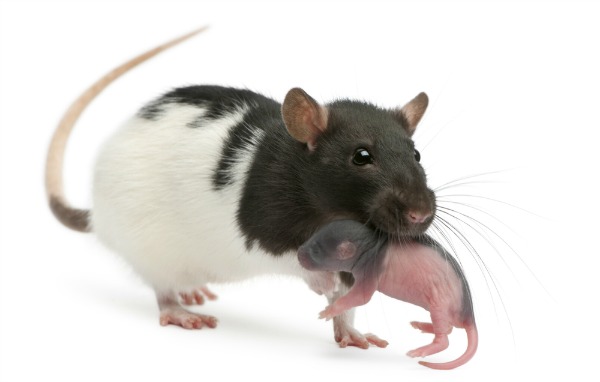Fear can be passed on from mother to child, a study shows
A team of US researchers from the University of Michigan and New York University studied mother rats to try to figure out how they ‘taught’ fear to their offspring.

Babies can smell their mothers’ fears and learn to be wary of the same things just a few days after being born.
The scientists trained female rats to fear the smell of peppermint by giving mild electric shocks to their feet every time the odour was released. The rodents later got pregnant and gave birth to pups, which were the ones used in the experiment.
When the baby rats were with their mothers, they were calm, but when the researchers released the peppermint scent and the mums stressed out, their pups stressed too—and soon they also became afraid of the smell, even without seeing their mothers reaction.
When adult rats are stressed, their bodies release a scent. The pups can notice this smell, and it’s because of this odour that they soon learn there is something to be feared.
After a few days, the pups’ amygdalae – an almond-shaped cluster of neurons found in the brain that plays a key role in processing emotions – activated when they smelt peppermint; and their levels of cortisol, a hormone associated with stress, increased too.
“Our behavioural results show that the odour of the frightened mother triggers pup stress response and supports infant social fear learning,” the authors wrote. Their results can also be used to understand how human mothers teach their babies to fear certain things.
Monte Morin from the LA Times reports that the researchers still need to figure out how the mothers’ odour teaches the pups to become fearful, but their results, however, shed some light on how phobias are transmitted.
“Our research demonstrates that infants can learn from maternal expression of fear, very early in life,” explained neuroscientist Jacek Debiec in a press release. “Before they can even make their own experiences, they basically acquire their mothers’ experiences. Most importantly, these maternally-transmitted memories are long-lived, whereas other types of infant learning, if not repeated, rapidly perish.”
The findings can also help to explain human behaviour, as researchers are still trying to figure out how and why children of mothers who suffer from post-traumatic stress syndrome also learn to fear the same experiences. The researchers explained that understanding the mechanisms that control fear transmission from generation to generation can help develop better preventive and therapeutic methods.
The results of the study were published in the journal Proceedings of the National Academy of Sciences.



